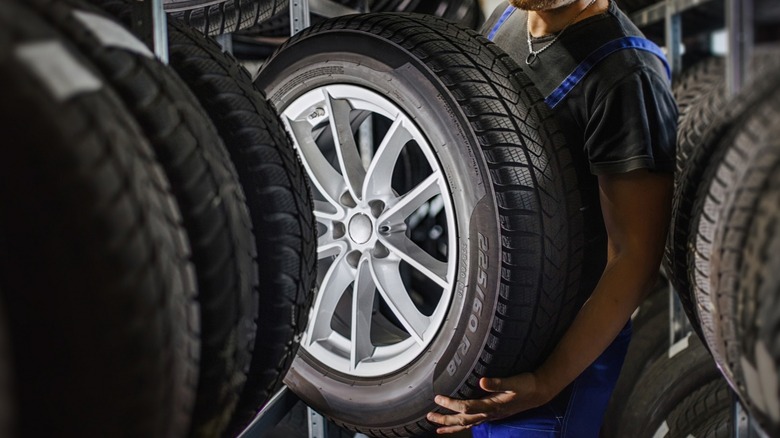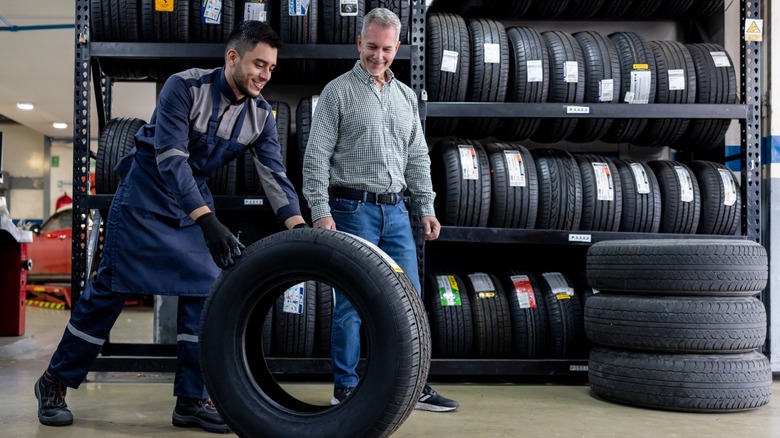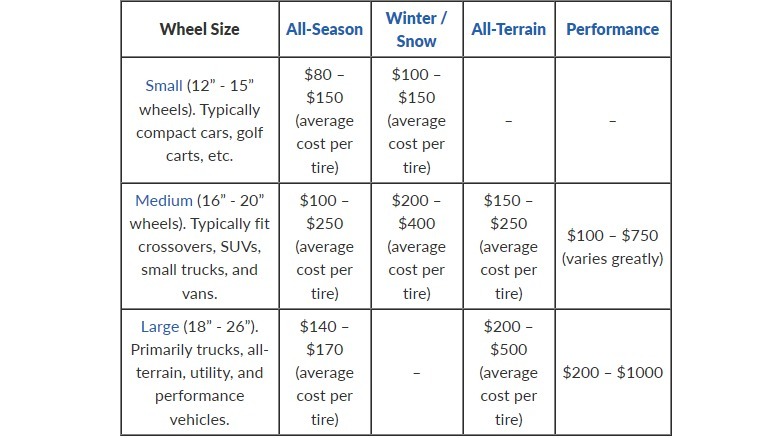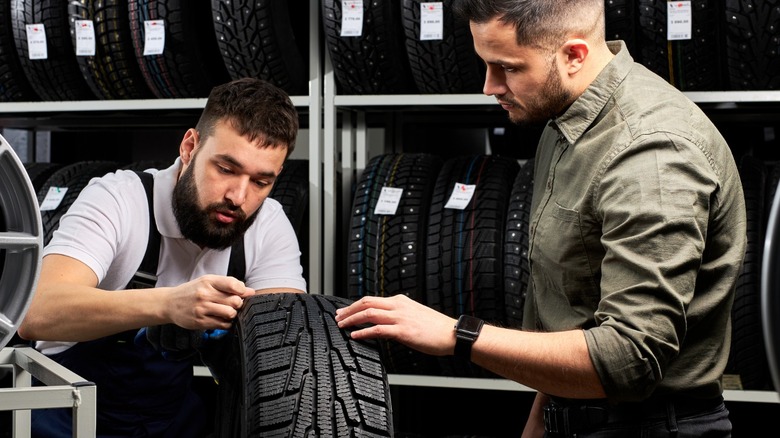The Average Cost Of New Tires (And How To Know If You're Being Ripped Off)
Tires are among the most critical parts of any vehicle. They carry the vehicle's weight and are the only point of contact between the car and the road. That's why tire safety is paramount to the overall safety of your vehicle, as losing traction at speed can lead to deadly consequences.
Aside from safety, tires also affect your vehicle's performance and driving dynamics. Older tires could be less grippy and can't deliver the required traction to let you make the most of your car. It could also impact your car's NVH levels, leading to an overall reduced level of comfort when driving.
If you're facing issues with your current tires, like low tire tread, uneven wear, a bubble on the side wall, or cracking, or if your tires are too old, it's time to buy a new set. How much money should you spend on a new set of tires?
How much do tires cost?
With thousands of car and truck models on the road and several tire manufacturers, it's almost impossible to list the prices of all the tires you can choose from. Furthermore, tire prices differ based on your vehicle type, the width and height of the tire, the diameter of your rims, its weight capacity, how fast it can go, the tread pattern, and many other factors.
Nevertheless, Discount Tire, one of the biggest tire retailers in the U.S., published a general tire pricing guide that offers a typical outlook on what you should expect to pay. This is how much the company expects tires to cost:
As you can see, cars with larger rims, like trucks, SUVs, and sports cars, generally have more expensive tires. Furthermore, high-performance vehicles generally have more pricey tires because their tires must have the technology to cope with the speeds they attain.
For example, the insanely fast Bugatti Veyron's tires cost $50,000 — a piece. That's why one of the rules of owning a Bugatti is to have a lot of money.
Getting the best value for money tires
Of course, not everyone owns a Bugatti, and not everyone can afford the most expensive tires. That's why you can find tires with different price points for the same size. However, even if you're on a budget, buying the cheapest tire doesn't automatically mean you're getting the best value.
One way to find a tire's value is to compute its cost per mile. Say you're picking between a $120 economy and a $200 premium tire. The economy tires will only cost $480, but the premium ones will cost $800. This $320 difference may seem steep, but you will see a different story if you break down your cost per mile.
Let's assume both sets of tires will last 60,000 miles — the economy tires will cost 0.8 cents per mile, while the premium tires will cost 1.3 cents per mile. Even if we reduce the lifespan of the tires to just 20,000 miles, the budget tires will cost 2.4 cents per mile, while the premium tires cost 4 cents per mile. With that computation, you'll see that the difference isn't that big.
Furthermore, premium tires usually have better features than economy models, like better fuel efficiency, a smoother and quieter ride, or even enhanced performance. Of course, you still need to stick to your budget when purchasing a tire, but if you can spare the extra cash, consider getting a more expensive model, especially if it'll give you more comfort or better performance.
Where to compare tire prices
If you're purchasing tires soon, it's wise to do some research before heading to your nearest tire shop. That way, you'll know how much you should budget and see if the major tire brands have a tire for your car. First, you should know what tire you need for your car. The best tire will vary depending on your rim size, vehicle type, use cases, and more. You should also check your current tires and note their size so you can look for something similar online.
Once you have an idea of what you need, you can go to tire retailer websites and check your options. Tire retailers like Les Schwab, Discount Tire, and Costco will let you search by tire size, vehicle, or even license plate. You can also check out websites like TireComp.com and Tires-Online.net to compare prices between specific tire models. However, note that the prices listed on these websites are just for tires. Mounting costs and other services like wheel balance and alignment are not included, so you'll have to factor that in when deciding.
Furthermore, you may need to pay to throw away your old tires. Some shops offer this for free, while others charge a small fee, as well as some states requiring a disposal tax for removing old tires. If you're finally getting a tire, it's best to canvass around a few tire shops and ask for a complete quote — tires, services, and all. That way, you won't get any surprises when you finally get a new set of rubbers for your ride.




